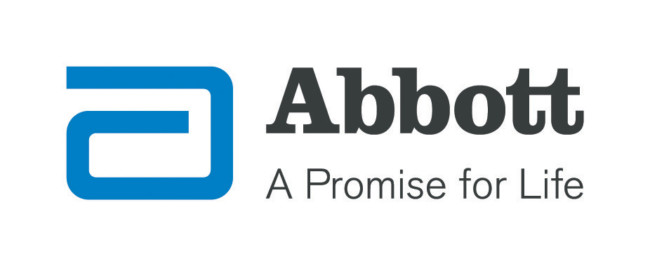I had the privilege of writing a short article for the Human Resources Management Association of Chicago this month. It is a short review of the value of accent coaching for international professionals who speak American English as a second language.
Here it is again:
How Accent Can Influence Perception
by Catherine Ojakangas, Ph.D.
(first published online with HRLeader of HRMAC, Chicago, 2020)
We are a diverse nation! Most likely, you see a lot of diversity in your organization. In 2018, there were 28.2 million employed persons in the United States who were born in another country. Of these, approximately 9 million individuals work in “management, professional and related occupations” and approximately the same number (9.7 million) hold a bachelor’s or higher degree.
These brave professionals immigrated to the United States leaving their way of life behind, and most are speaking a language at work that they did not grow up speaking. Some of these talented individuals are having difficulty with communication in American English. Although unfair, social psychology researchers Shiri Lev-Ari and Boaz Keysar found that, in America, we judge others as less believable if they speak with a non-native accent, especially if we are having trouble understanding them. Interestingly, YouGov reports that this prejudice does not extend to British accents.
As a speech pathologist and neuroscientist who works with international professionals to help them improve their speech clarity and effectiveness, I hear about the struggles these individuals have at work. Sometimes human resources or professional development managers call me.
Frequently, the international employees themselves call. Many clients feel they cannot advance in their career because of how they speak. Many feel humiliated when asked frequently to repeat themselves. The vast majority of my clients report feeling insecure. And lest you think I am only talking about brand-new immigrants who have trouble making themselves understood, I’m not. I have had non-native corporate officers of large U.S. companies tell me about how insecure they often feel when speaking accented English. One native French speaker (a CFO) had problems being understood by the board members of his company. One upwardly mobile young non-native business school graduate said something which I find myself quoting quite a bit: No one will know how smart you are, if they can’t understand you.
How can you help the international professionals in your organization communicate better, if needed? If an employee has pronunciation difficulty with occasional business terminology, another employee may be able to peer-coach the individual. Another method which can be helpful, especially when public speaking anxiety is high, is for the individual to join Toast Masters or a meet-up communication group in their field or with other non-native individuals. I helped one non-native client of mine join an improvisation comedy group. She loved it and continues attending to this day.
By far the most targeted way to help non-native English speaking employees communicate more effectively is to use the services of a trained accent coach. Since communication is so valuable, no matter the field, many organizations are now paying for their non-native employees to participate. Companies have long recognized the benefit of traditional ‘executive coaching’ for their high-level or high potential employees. Executive coaching helps professionals achieve work objectives, clarify their goals, interpret 360-degree assessments and develop other job related skills. For those individuals with accents which affect their intelligibility, the services of a qualified accent coach are crucial. Accent coaching is a relatively new training niche, but one that more and more companies are finding invaluable. A qualified accent coach is a speech language pathologist (also known as a “speech therapist”) who is skilled in analyzing an individual’s speech patterns and adept at devising and implementing a time-limited program to adapt new patterns of speech. Because it takes the brain approximately 3–4 months to establish new neural patterns necessary for making a new behavior automatic, training usually takes that amount of time. No matter what language we are speaking, we as individuals do not want to think about HOW we are speaking, we want to think about WHAT we are saying. This requires automaticity of speech, which only comes from consolidated practice of the new behavioral patterns.
Accent coaching is not English as a Second Language training. Language training involves learning the rules of a language — the grammar, syntax, semantics — and is entirely in one’s brain, so to speak. Accent coaching focuses on the output, the verbal expression of the language one knows. Although improving high-level business phraseology and/or public speaking skills may be part of an accent coaching plan, the primary focus is always on mastering the sounds and intonation of American English and pinpointing and changing the habits brought over to English from the client’s native language.
In addition, a good accent coaching practice focuses on the speaking needs of the professional.
Do they need to lead team meetings? Give frequent public speeches? Participate in conference calls with clients? Many business cultures, for example Asian, are very different from those of America, and these differences can impact how an individual’s communication is perceived. By practicing real-life communication situations, international professionals can improve their efficacy as well as confidence in their new home.
In business, as in life, nothing is more important than effective communication with others. By offering your international employees the tools they require to become top-notch communicators in English, your organization will improve. In addition, your employees will gain self-confidence.
The business as well as the individual benefits. America is, after all, a nation of immigrants. We were all immigrants once, and it is this diversity that makes America great.
Resources
- “Foreign-born Workers: Labor Force Characteristics – 2018,” Bureau of Labor Statistics, May 16, 2019 News Release
- “Why don’t we believe non-native speakers? The influence of accent on credibility” by Shiri Lev-Ari and Boaz Keysar, Journal of Experimental Social Psychology, November 2010
- “It’s true! Americans love British accents” by Will Dahlgreen, YouGov.com, January 18, 2014













